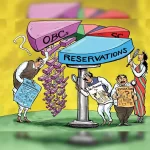In the swiftly changing landscape of our modern era, governments across the planet are perpetually exploring inventive strategies to bolster the well-being of their populace and foster the expansion of their economies. Among these strategies lies the realm of government initiatives, encompassing a diverse array of programs meticulously crafted to tackle an array of socio-economic complexities. While the primary objectives of these schemes are often widely known, there exist numerous hidden perks that citizens can tap into. This article delves into the unexplored dimensions of government schemes, highlighting the lesser-known advantages that can unlock a world of opportunities for individuals and communities.
- Enhancing Financial Literacy and Inclusion
Government schemes often incorporate financial literacy programs as a core component. By educating citizens about prudent financial practices, these initiatives empower individuals to make informed decisions about their money. The benefits of improved financial literacy extend far beyond the immediate scheme participation. Individuals become better equipped to manage their finances, save, invest, and plan for their future, ultimately leading to increased economic stability and independence.
- Fostering Skill Development and Employment
Many government schemes focus on skill development and employment generation. Beyond the obvious advantage of gaining new skills, these programs provide individuals with opportunities to expand their horizons. Participants can discover latent talents, explore new career paths, and transition into more fulfilling professions. Moreover, the emphasis on vocational training and skill enhancement enhances employability, reducing unemployment rates and contributing to overall economic growth.
- Promoting Entrepreneurship and Innovation
Government schemes often provide support for aspiring entrepreneurs and startups. Beyond financial assistance, these programs offer mentorship, networking opportunities, and access to resources that nurture innovation. Aspiring business owners can leverage these perks to transform their ideas into thriving enterprises. This not only stimulates economic activity but also fosters a culture of innovation that drives sustained progress.
- Strengthening Healthcare Access and Awareness
Healthcare-focused government schemes go beyond providing medical services; they play a pivotal role in raising health awareness. Citizens who participate in such programs gain valuable insights into preventive healthcare practices, disease management, and healthy lifestyle choices. This increased health literacy translates into long-term benefits, reducing the burden on healthcare systems and leading to healthier, more productive lives.
- Empowering Women and Marginalized Groups
Numerous governmental initiatives exhibit a focused intent on uplifting marginalized segments of society, encompassing women, minority groups, and those with varying abilities. These multifaceted endeavors pave pathways towards education, proficiency enhancement, and economic enfranchisement, thus cultivating an environment of inclusiveness and embracing diversity. In effect, participants transcend societal obstacles and concurrently play a pivotal role in nurturing a society that is both equitable and dynamically vibrant.
- Preserving Cultural Heritage and Arts
Cultural preservation is often an integral part of government schemes. By supporting traditional arts, crafts, and heritage, these initiatives ensure the continuity of cultural legacies. Participants in such programs not only receive financial assistance but also benefit from skill refinement and exposure to wider markets. This dual approach safeguards cultural heritage while providing individuals with opportunities to generate income from their unique talents.
- Driving Sustainable Agriculture and Environmental Conservation
Government schemes centered around agriculture and environmental conservation have far-reaching benefits. Beyond improving agricultural practices and ensuring food security, these programs encourage sustainable farming techniques that promote long-term environmental well-being. Participants gain insights into eco-friendly practices, contributing to the preservation of natural resources and biodiversity.
- Enabling Affordable Housing and Infrastructure Development
Affordable housing and infrastructure development schemes are more than just avenues for acquiring property. They provide families with stable living conditions, fostering a sense of security and well-being. Additionally, these programs stimulate economic growth by creating jobs in construction and related industries. The ripple effect of improved housing and infrastructure extends to enhanced living standards and community development.
- Supporting Research, Education, and Innovation
Government schemes that focus on research, education, and innovation have wide-ranging positive impacts. Scholars and researchers who participate in these initiatives gain access to resources, funding, and collaborative opportunities. This not only advances academic pursuits but also contributes to scientific discoveries and technological advancements that shape the future.
- Cultivating Digital Literacy and Technological Proficiency
Government schemes frequently incorporate digital literacy programs to bridge the technological divide. In a digitally-driven world, gaining proficiency in technology enhances employability and economic participation. Citizens who partake in these programs not only learn to navigate digital platforms but also acquire skills relevant to an ever-evolving job market. Beyond immediate scheme benefits, the cultivation of digital literacy empowers individuals to harness technology for communication, education, and business, thus contributing to their personal growth and broader economic advancement.
- Nurturing Artistic Expression and Creative Industries
Some government schemes champion artistic expression and creative industries. By providing support to artists, writers, and cultural creators, these initiatives promote the flourishing of art and culture. Participants benefit from exposure to wider audiences, networking opportunities, and financial assistance. Beyond financial gains, engagement in the arts fosters creativity, encourages innovation, and contributes to a vibrant cultural landscape that enriches societies and spurs tourism and cultural exchange.
- Boosting Tourism and Local Economies
Tourism-centric government schemes carry hidden perks that ripple through local economies. Extending further than the initial surge of tourists, these initiatives frequently pave the way for infrastructural advancements, elevated service standards, and a heightened call for indigenous products and offerings. Consequently, communities reap the rewards of amplified avenues for sustenance, expanded commercial activity, and an augmented feeling of honor for their rich cultural legacy. By attracting visitors, these schemes can breathe new life into regions and contribute to sustainable economic growth.
- Empowering Rural Development and Agriculture
Government schemes focused on rural development and agriculture extend beyond agrarian concerns. Participants gain access to modern farming techniques, advanced equipment, and market linkages, all of which can transform subsistence farming into profitable enterprises. Furthermore, these initiatives promote sustainable land management and conservation, which has long-term ecological and economic benefits
Conclusion
Government schemes are multi-faceted initiatives that go beyond their apparent objectives. While the primary goals may be well-publicized, the hidden perks of these schemes can significantly impact individuals and communities. From improved financial literacy to enhanced healthcare access, entrepreneurship opportunities, and preservation of cultural heritage, the benefits are diverse and far-reaching.










